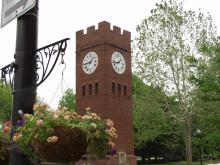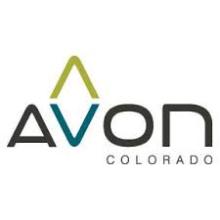Fast, affordable Internet access for all.
News
Hudson, Ohio Decides Time Has Come to Build Citywide Fiber Network
In northeast Ohio, 15 miles north of Akron, the City of Hudson looks to modernize its telecommunications infrastructure through a public-private partnership that would expand the city-owned municipal fiber network, which now only serves part of the city, to reach all 22,000 residents who call Hudson home. The city wants every resident and business to have access to gig fiber service for the same afforable rate now being offered by its geographically-limited Velocity Broadband network. Proposals from prospective Internet service providers are due by Dec. 2.
Glenwood Springs, CO Says Fiber Expansion Ahead Of Schedule
When last we checked in with Glenwood Springs, Colorado, the city council had voted 6-1 to replace and expand the reach of its existing, municipally-owned fiber system.
Lehi City, Utah Breaks Ground On Open Access Fiber Network
Lehi City, Utah has broken ground on its new citywide fiber optic broadband network. The network, which city leaders say should take somewhere around three years to complete, will be built on the back of Lehi’s Utilities Department, part of a growing trend of U.S. utilities using an historic infusion of federal funding to expand affordable broadband connectivity. The Lehi Fiber Network will operate as an open access network, meaning that multiple ISPs will be able to utilize the city’s new infrastructure, providing a much-needed dose of broadband competition to local residents and businesses alike. Five ISPs have already committed to providing service over the city-owned fiber.
Indigenous Connectivity Summit 2022 Begins
The sixth annual Indigenous Connectivity Summit kicked off today in Winnipeg, Manitoba, Canada, bringing together Indigenous community members and leaders; network operators; researchers; and policymakers to focus on how Indigenous communities in the United States and Canada can expand access to fast, affo
Avon, Colorado Will Join ‘Project Thor’ Middle Mile Coalition
Avon, Colorado will soon be joining Project THOR, an open access middle mile fiber alliance of 14 communities spearheaded by the Northwest Colorado Council of Governments (NWCCOG).
Study: Low Income LA County Neighborhoods Pay More for Internet Service Than Wealthier Neighborhoods
A new study from the Digital Equity LA initiative lays bare how low-income communities of color are impacted by the quiet business decisions of the county’s monopoly Internet service provider. Slower and More Expensive/Sounding the Alarm: Disparities in Advertised Pricing for Fast, Reliable Broadband details how Charter Spectrum “shows a clear and consistent pattern of the provider reserving its best offers - high speed at low cost - for the wealthiest neighborhoods in LA County.” Not only does it highlight how economically vulnerable households in LA County pay more for slower service than those in wealthy neighborhoods, it also provides evidence for how financially-strapped households are also saddled with onerous contracts and are rarely targeted by advertisements for Charter Spectrum’s low cost plans.
Lexington, Tennessee Will Soon See Fiber Competition Thanks To Local Utility
Lexington, Tennessee is the latest U.S. city that will soon see the expansion of more affordable fiber thanks to the city-owned utility, Lexington Electric System (LES). LES’ recent $27.49 million state grant award will be the backbone of a new initiative that will both improve the utility’s electrical services, and deliver a long overdue dose of broadband competition to the area. The plan is deploy over 2,100 miles of fiber to bring high-speed Internet access to 22,000 residents across Henderson, Decatur, Benton, Carroll and Hardin counties that already receive electricity service from the utility.
Warren Co. Pennsylvania Seeks Partner to Bring Broadband to Rural Residents
In late August, Warren County Commissioners in northwest Pennsylvania issued a RFP that sought to establish a public-private partnership to bring high-speed Internet connectivity to rural parts of the county near the Allegheny National Forest and River.
Community Broadband Networks Zooms in to Minneapolis for Team Retreat
Cooperatives and Utilities Huge Winners in Tennessee Emergency Broadband Fund
East Carroll Parish Residents in Louisiana Fend Off Sparklight Challenge
Residents of East Carroll Parish are “cautiously celebrating” the decision by Louisiana’s Office of Broadband Development and Connectivity to uphold a $4 million GUMBO grant to bring fiber-to-the-home (FTTH) Internet service to over 2,500 households in one of the most poorly connected parts of the state.



















